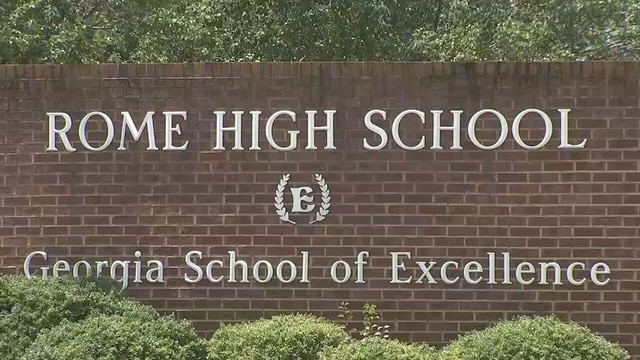
Those living in Washington who want to attend a college or university can apply for Washington State grants for college. These grants will help Washington residents pay for college and not require student loans. The Washington State Achievement Council offers grants that are designed to make higher education more affordable.
Washington residents are eligible to apply for a variety of grants and scholarships. There are general scholarships available for all Washington residents, as well as career-specific financial aid programs. These programs include scholarships and loans, which can be used to pay for tuition, books, and other educational expenses.
Washington State College Grants for undergraduate Washington residents are available to those with high financial needs. These grants are available in a range of $500 to $10,000 per annum. The grant is subject to satisfactory academic performance rules. The student must be full-time enrolled in Washington schools in order to qualify. The grant is not guaranteed, and there is a maximum lifetime limit of 15 full-time quarters.

Washington State Opportunity Grants are for students who are from low-income families. This grant is intended to support low-income students pursuing training in high-demand career fields. You can also get up to $1000 funding to buy books. These grants are available to students who are attending a state university, community college, or technical college in Washington.
Native American students can apply for the American Indian Endowed Scholarship. All applicants must be Washington residents and have strong social or cultural ties to an American Indian community. Transcripts of their five previous years of schooling are required. They will be asked to write essays about how their education will benefit Indian communities. These awards are renewable up to five years.
Washington Work-Study Program, one of 13 state-based programs, is one. Students who qualify for the program will receive an approved job with a participating employer. The program is available to students who are enrolled full time in a low-income program or who are enrolled in a program that is subsidized by the federal government.
Washington grants and scholarships are available to high school students. These scholarships are for students who have overcome personal hardships or come from low-income households. The scholarship is awarded based upon a student's academic record as well as financial need. To apply, students must meet certain requirements. This includes receiving school lunches at no or reduced prices.

There are several other grants and scholarships available to Washington residents, such as those for children of law enforcement officers, children of highway workers, and foster care youth. There is also a Passport to College Promise Scholarship. The scholarship covers college tuition, housing, transportation, and personal expenses like clothing. Only Washington residents are eligible for this scholarship. Half-time enrollment is required by the 22-year-old student.
FAQ
How do I apply to college?
There are many different ways to apply to college. You can get started by contacting your high school guidance counselor or admissions representative. Many high school applications can now be submitted online. You can also contact local colleges directly. Most colleges will accept online applications through their website.
You can apply by mail, but you will need to complete the application and write a personal essay. Also, send copies of any required documents. The personal statement gives you an opportunity to share why you want to attend this particular institution and how it would benefit you. It also helps the admissions committee understand your goals and motivations.
You can download sample essays from this website.
What is a vocational school?
Vocational schools offer programs for those who are interested in a particular occupation. They might also provide training in job-related skills and general education.
Vocational education has a significant role to play in society. It helps young people gain the skills they need to succeed. It provides high-quality learning opportunities for all students.
A vocational school gives its students many options. This includes certificates, diplomas/degrees, apprenticeships, certificates as well college transfer programs and other postsecondary credentials. Vocational schools are able to teach both academic and vocational subjects such as maths, science, English, English, social studies and music.
Do I want to specialize in one area or should I branch out?
Many students choose to specialize in one subject (e.g., English, History, Math) instead of branching into multiple subjects. It's not necessary to be a specialist. If you're interested in becoming an internist or a surgeon, you have the option to choose either surgery or internal medicine. You could also opt to become a general physician, specializing in either pediatrics, family practice or psychiatry. If you are considering a career in the business world, you might focus on marketing, sales, finance, operations research, marketing management, and human resources. The choice is yours.
How do I select my major?
Students choose their majors based upon their interests. Because they find it easier to study something they love, some students choose to major on a subject that they really enjoy. Others want to pursue a career for which there are no jobs available. Others choose a major to make money while they study. Whatever your reasons may be, you should consider what job you might enjoy after graduation.
There are many avenues to find information about various fields of study. Talk to friends or family members about their experiences. You can check newspapers and magazines to see if any jobs are listed. Talk to your guidance counselor at school to learn more about possible careers. Visit the Career Services section of your local library. Your local library has books on a variety of topics. You can search the Internet for information about specific careers.
What is the difference in public and private schools?
All students have the right to free education in public schools. They offer education from kindergarten to high school. Private schools charge tuition fees for each student. They provide education from preschool to college.
There are charter schools that are both privately operated and publicly funded. Charter schools don't follow traditional curricula. Instead, they give their students more freedom to learn what interests them.
Parents who believe that their children should be able to access quality education no matter what their financial situation are fond of charter schools.
Is it difficult to become a teacher?
It takes a lot of commitment to become a teacher. You will need to devote a significant amount of time to your studies.
While completing your degree, you can expect to work approximately 40 hours per week.
You will also need to find a job that suits your schedule. Many students report difficulty finding part-time jobs that work around their school schedules.
When you are hired for a full-time job, you will most likely be required to teach classes during the school day. You may also need to travel between schools each week.
Statistics
- Think of the rhetorical power of nineteenth-century abolitionist Harriet Beecher Stowe, Martin Luther King, Jr., or Occupy Wall Street activists with their rallying cry of “we are the 99 percent.” (bostonreview.net)
- Data from the Department of Education reveal that, among 2008 college graduates, 92.8 percent of humanities majors have voted at least once since finishing school. (bostonreview.net)
- Among STEM majors, that number is 83.5 percent. (bostonreview.net)
- “Children of homeowners are 116% more likely to graduate from college than children of renters of the same age, race, and income. (habitatbroward.org)
- Globally, in 2008, around 89% of children aged six to twelve were enrolled in primary education, and this proportion was rising. (en.wikipedia.org)
External Links
How To
What is vocational education?
Vocational Education, which is an educational system that prepares high school students for jobs after college or high school, provides them with training in specific skills required for a job (e.g. welding). Vocational Education also offers apprenticeship programs that provide on-the-job training. Vocational education differs from general education because it focuses on preparing individuals for specific careers rather than learning broad knowledge for future use. The goal of vocational education is not necessary to prepare people for university study but to help them find jobs upon graduation.
Vocational education can take place at all levels of schooling. This includes primary schools, secondary schools and colleges, universities as well as colleges, technical institutes, technical colleges, trade schools, community college, junior colleges, four-year colleges, and colleges. There are also many specialty schools like nursing schools and law schools, legal schools, medical schools and dental schools as well as veterinary medicine, veterinary medicine, firefighting, police academies and military academies. These schools offer both practical and academic training.
Over the last decade, several countries have made significant investment in vocational education. However, the effectiveness of vocational education remains controversial. Some critics claim it is not effective in improving students' employability. Others argue that it helps them prepare for life after school.
According to the U.S. Bureau of Labor Statistics, 47% of Americans have a degree or certificate related to their current occupation. This number is higher for those with higher education. 71% of 25-29-year-olds have a bachelor's or higher degree and are employed in areas that require postsecondary credentials.
According to the BLS in 2012, almost half of Americans had at the least one type of postsecondary credential. About a third of Americans were able to obtain a twoyear associate degree. Another 10% had a fouryear bachelor's. One out of five Americans held a master's degree or doctorate.
For those with a bachelor’s degree, the median annual income was $50,000. This is compared to $23,800 if you don't have one. For advanced degrees, the median annual wage was $81,300.
For those who did no high school, the median salary was only $15,000. Earn $13,000 per annum for those with less high school diplomas.